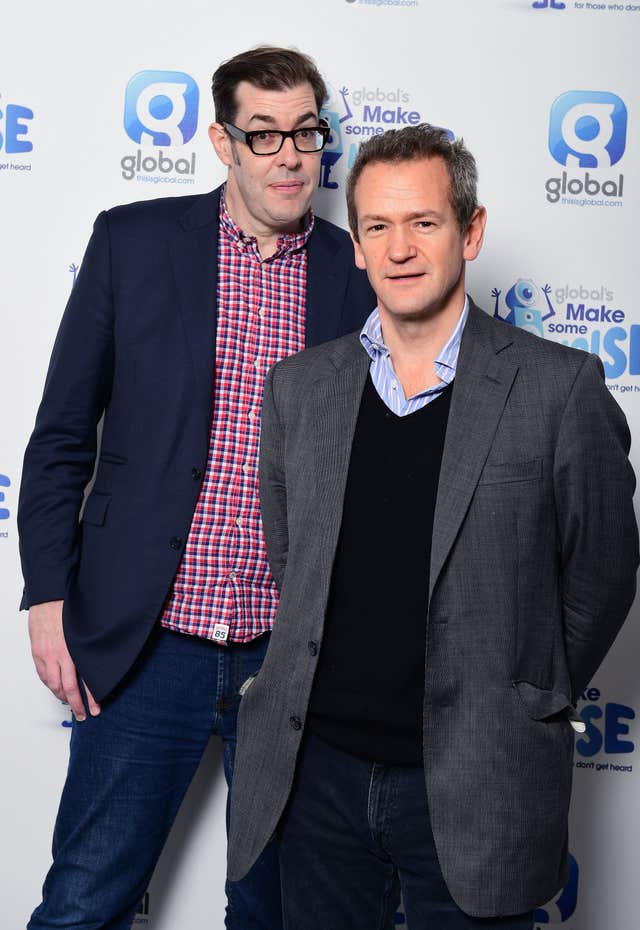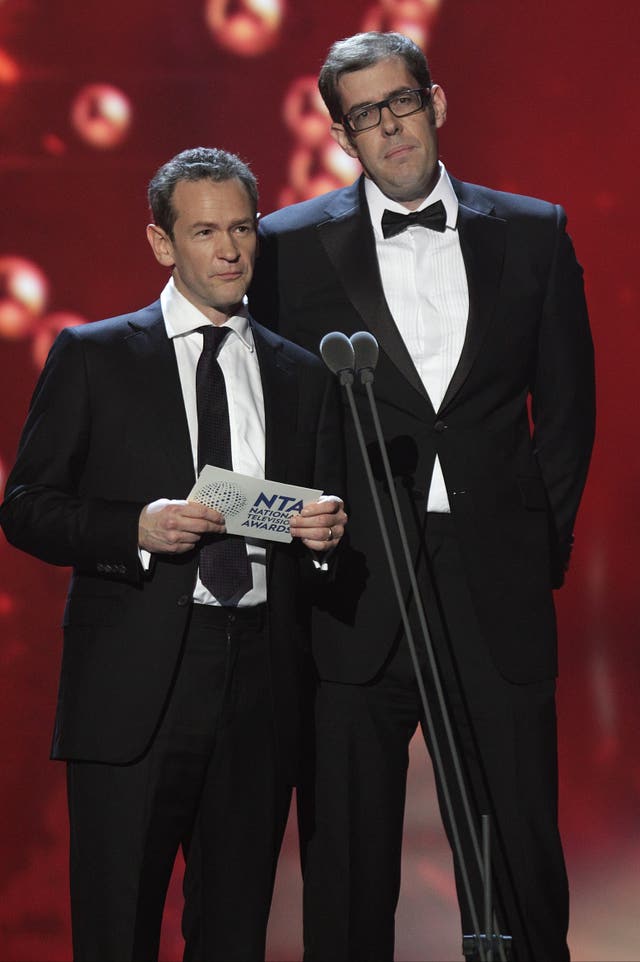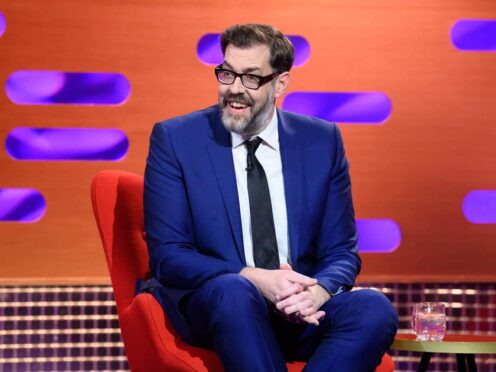Richard Osman has said he would “love” to write his family members into a working class social history crime novel following his stint on the BBC’s Who Do You Think You Are?
The TV presenter and crime writer discovered his five-time great-grandmother Elizabeth, her son Gabriel and his wife were “at the heart” of solving a murder in Brighton after forming an amateur detective group.
The 51-year-old said it was “bizarre” and an “incredible, unusual coincidence” that his family history imitates the plot of his best-selling debut novel The Thursday Murder Club, which was published in September 2020.
This was genuinely true. A remarkable coincidence. The show is on in a couple of weeks. https://t.co/udxLCMjeFa via @MetroUK
— Richard Osman (@richardosman) May 17, 2022
The book, whose global film rights were later bought by Steven Spielberg’s production company, follows a group of pensioners at a retirement village who investigate unsolved crimes.
Talking about the possibility of his family members featuring as detectives in a future book, Osman said: “Essentially my great-great- great-great-grandfather and his mum and his wife solved a crime, and at a time before the police had formed, that was the interesting thing, the police had still not been formed for another 10 or 15 years.
“So to me, the community solving crimes in that environment where there are no police, I thought would be a fascinating drama.
“I mustn’t forget it’s real life. But it would be nice to mark those people and their story somehow.
“It’s interesting because Gabriel is the one that’s focused on. I think history was written down the male line in those days.

“But he investigated this thing with his wife and his mother, and his mother, when you look at the transcripts, sounds like the prime mover, sounds like the one who knew what was going on.
“It sounds like she was the first one who knew they found a body, but of course Gabriel is the one that was called to give evidence at court.
“I think there’s something to be said for some working class social history and crime at the same time, and it feels like a good forum for it.”
Osman said he was not expecting to feel “quite so sad” after appearing on BBC One show Who Do You Think You Are? but it did make him “re-look at the world around us”.
He said: “It’s generation after generation after generation of hard workers, labourers and soldiers, most of whom end up in the workhouse.
Did you know that The Thursday Murder Club's Joyce has her very own Instagram account? 🔎 Icon behaviour tbh @richardosman pic.twitter.com/2XX8d5IcCk
— This Morning (@thismorning) May 11, 2022
“I imagine this is the story of most families and it doesn’t get told quite so often.
“I wasn’t expecting to feel quite so sad at the waste. We waste generations upon generations of people who are born into poverty and they were unable to get themselves out of it.
“So I feel very grateful that I’m at the end of that line, but it’s made me re-look at the world around us.”
Osman added that he is the “first one” from his family born with opportunity and hopes he “hasn’t wasted it, for their sakes”.
Talking about what the show has taught him, he said: “We still live in a society where we’re told to look down on people in poverty, and that people in poverty have somehow not tried hard enough, people in poverty just haven’t taken their opportunities, and they just haven’t had the skills to get out of where they were.
Delighted to hear that #TheManWhoDiedTwice has just broken the million sales barrier in the UK! Don't forget #TheBulletThatMissed, the third book in the series, will be out in September!!! And I'm just about to start writing the fourth!
— Richard Osman (@richardosman) May 24, 2022
“So I think what it’s taught me is, we’ve always thought that people have always blamed the poor for their poverty.
“We think after a rush of social mobility we’re out of it and of course we’re not out of it.
“In 200 years’ time, there’ll be somebody looking back at their family in the 21st century, saying they were born into poverty and they died in poverty.
“It’s an unfashionable thing to say these days, and I’m a great believer in hard work and luck, but most people do not have the opportunities to achieve in our society, and it seems a shame after these many hundreds of years that that’s still the case.”
In April, Osman revealed he would be stepping back from BBC game show Pointless having co-hosted alongside Alexander Armstrong since it debuted in 2009, but he will continue to host Pointless Celebrities as well as his BBC Two show, Richard Osman’s House Of Games.

Osman added: “I’ve got plenty of TV to be filming and I love, love, love writing the novels, is the truth.
“It’s the first time I’ve ever done a job where it’s just me, by myself in a room, and it turns out I really enjoy that. It took me to 50 years old to work that out, I love it.
“I’ve got a combination now where I can do sort of nine months of writing and three months at House Of Games and Celebrity Pointless and that feels about right to me.”
The episode of Who Do You Think You Are? airs on June 9.
